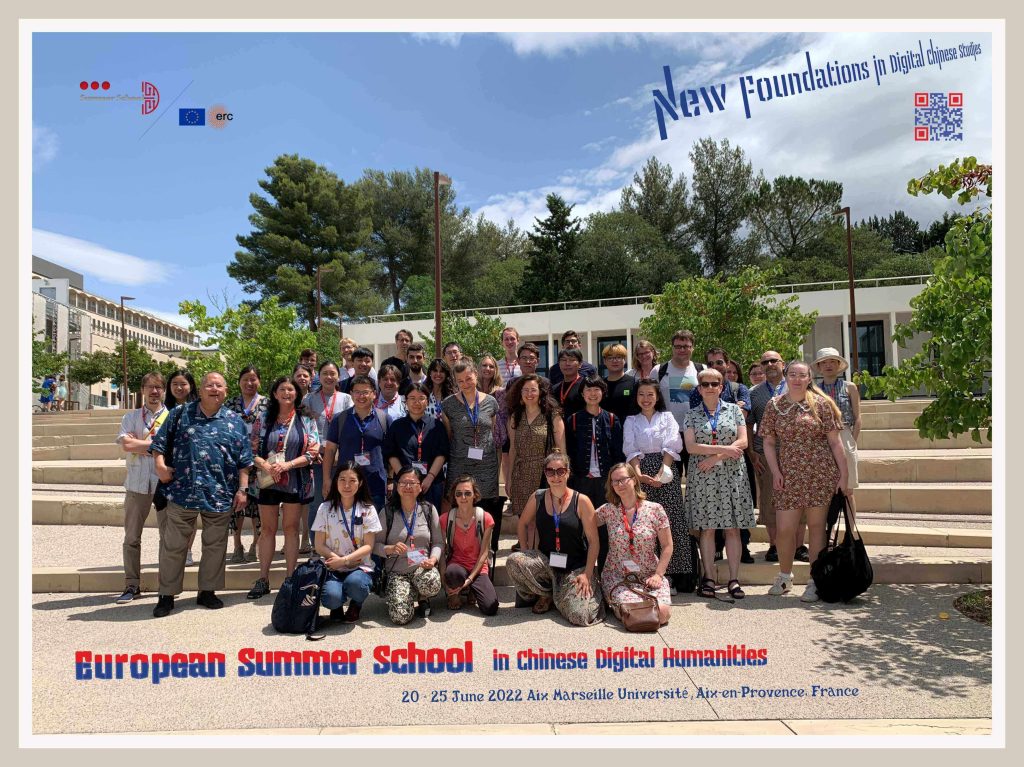The advent and continued development of digital tools and technologies in the past decade has been a significant boon for scholars in both the humanities and social sciences. Digital technology is transforming research and teaching in academia, enabling scholars to employ new methodologies and to answer questions in ways that would previously not have been possible. In recent years many new university centers, institutes, conferences and training schemes such as Summer Schools have been organized in order to further the development of methodological innovation and innovative research outputs.
The purpose of the ESSCS 2022 is to offer an opportunity for scholars in Chinese Studies, and particularly those at the beginning of their careers, to develop skills in a variety of digital methods and to gain a fuller understanding of the challenges of implementing digital technologies. Chinese studies are facing several vital issues and questions. For example, what are the particular challenges of carrying out research using non-Latin script languages? What are the specific difficulties of researching using digital methods within the Chinese cultural context? What are the main sources for digital Chinese studies and how can they be used most effectively? How can datasets be most effectively created for studies within the Chinese context? And what are the technologies for text processing or visualization to be harnessed to produce results related to the history and culture of China?
The pace of technological change has accelerated, with a radical transformation of the scientific landscape that was not even imaginable just five years ago. Artificial Intelligence has increasingly made its way into research methods, while there was at the same time a prodigious expansion of digital resources (corpora, databases) in all aspects of Chinese history and culture. While “digital humanities” still provide a convenient and familiar overall concept, there is more at play with a gradual shift toward computational social sciences. This multidimensional transformation raises a daunting challenge to academic research in the China field. While digital methods in our field could be seen almost as experimental or exploratory a decade ago, these methods have not only matured to provide a wide range of tools for research, but they have also gained more and more acceptance in academia in the United States, Taiwan, China, and Europe.
The 2022 Summer School is open to anybody working in any area of Chinese Studies. It is primarily aimed at doctoral students, postdocs, and early career researchers at universities in Europe. EACS has granted us its official sponsorship
Every session of the Summer School will be led by a world-leading expert in each area of digital research (see Schedule). All the mentors have been at the forefront of developing cutting-edge methodologies or tools that have allowed other researchers to make significant advances in their fields. To situate the event as broadly as possible within the field of Chinese Studies, altogether the experts will have expertise in a wide range of type of corpora as well as different states of the Chinese language (medieval, early modern, modern, contemporary). Each of the mornings will also see a keynote lecture showcasing pathbreaking digital research projects in different field.
The proposed Summer School will be quite intense, with a view to facilitate learning through sustained immersion, hands-on practice, and a paced approach of each major application in the field Chinese studies. It may involve online tutorials and materials made available beforehand to the participants through a dedicated platform.
Participants will have the opportunity to present their own research and discuss the pros and cons of engaging with different kinds of digital methods. The Summer School will conclude with a one-and-a-half-day conference by the scholars involved in the summer school.



